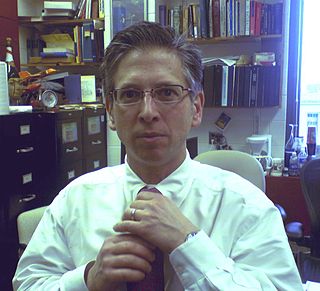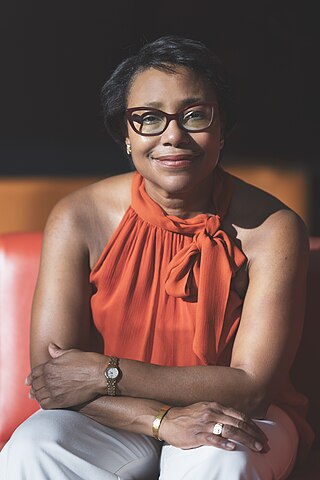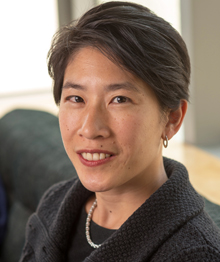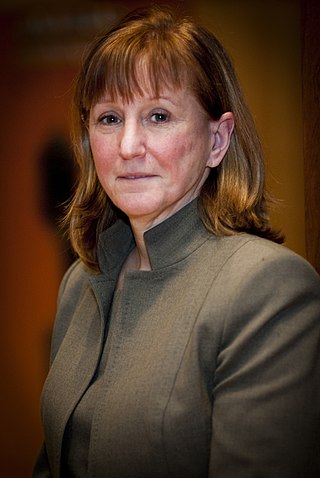
Paul S. Weiss is a leading American nanoscientist at the University of California, Los Angeles. He holds numerous positions, including UC Presidential Chair, Distinguished Professor of Chemistry and Biochemistry, Bioengineering, and of Materials Science and Engineering, and founder and editor-in-chief of ACS Nano. From 2019–2014, he held the Fred Kavli Chair in NanoSystems Sciences and was the director of the California NanoSystems Institute. Weiss has co-authored over 400 research publications and holds over 40 US and international patents.

Armand Paul Alivisatos is an American chemist and academic administrator who has served as the 14th president of the University of Chicago since September 2021. He is a pioneer in nanomaterials development and an authority on the fabrication of nanocrystals and their use in biomedical and renewable energy applications. He was ranked fifth among the world's top 100 chemists for the period 2000–2010 in the list released by Thomson Reuters.
Craig Jon Hawker is an Australian-born chemist. His research has focused on the interface between organic and polymer chemistry, with emphasis on the design, synthesis, and application of well-defined macromolecular structures in biotechnology, microelectronics, and surface science. Hawker holds more than 45 U.S. patents, and he has co-authored over 300 papers in the areas of nanotechnology, materials science, and chemistry. He was listed as one of the top 100 most cited chemists worldwide over the decade 1992–2002, and again in 2000–2010.

Chad Alexander Mirkin is an American chemist. He is the George B. Rathmann professor of chemistry, professor of medicine, professor of materials science and engineering, professor of biomedical engineering, and professor of chemical and biological engineering, and director of the International Institute for Nanotechnology and Center for Nanofabrication and Molecular Self-Assembly at Northwestern University.

Peter John Stang is a German American chemist and Distinguished Professor of chemistry at the University of Utah. He was the editor-in-chief of the Journal of the American Chemical Society from 2002 to 2020.

Younan Xia is a Chinese-American chemist, materials scientist, and bioengineer. He is the Brock Family Chair and Georgia Research Alliance (GRA) Eminent Scholar in Nanomedicine in the Wallace H. Coulter Department of Biomedical Engineering, with joint appointments in the School of Chemistry & Biochemistry, the School of Chemical & Biomolecular Engineering, and Parker H. Petit Institute for Bioengineering & Bioscience at the Georgia Institute of Technology.
Benjamin S. Hsiao is an American materials scientist and educator. He served as the vice-president for research and chief research officer at Stony Brook University from May 2012 to December 2013.

Zhenan Bao is a chemical engineer. She serves as K. K. Lee Professor of Chemical Engineering at Stanford University, with courtesy appointments in Chemistry and Material Science and Engineering. She served as the Department Chair of Chemical Engineering from 2018 to 2022. Bao is known for her work on organic field-effect transistors and organic semiconductors, for applications including flexible electronics and electronic skin.

Paula Therese Hammond is an Institute Professor and the Vice Provost for Faculty at the Massachusetts Institute of Technology (MIT). She was the first woman and person of color appointed as head of the Chemical Engineering department. Her laboratory designs polymers and nanoparticles for drug delivery and energy-related applications including batteries and fuel cells.
V Ramgopal Rao is an Indian academic currently serving as the Group Vice Chancellor of Birla Institute of Technology and Science, Pilani for campuses located in Pilani, Dubai, Goa, Hyderabad and Mumbai. He was previously the Director of IIT, Delhi for six years during 2016-2021.

Ashutosh Sharma is an Institute Chair Professor and C V Seshadri Chair Professor at the Department of chemical engineering of Indian Institute of Technology Kanpur. He is the founding Coordinator of DST Thematic Unit of Excellence on Soft Nanofabrication and Chairman of Centre for Environmental Science and Engineering at IIT Kanpur. He is best known for his pioneering research work in the areas of colloids, thin film, interfaces, adhesion, patterning and in the fabrication and application of self-assembled nano-structures.
Cynthia Friend is president and chief operating officer of The Kavli Foundation. She is on leave from the department of chemistry and chemical biology at Harvard University. Friend was the first female full professor of chemistry at Harvard, attaining the position in 1989. Friend has held the Theodore William Richards Chiar in Chemistry and served as professor of materials science in the Paulson School of Engineering.

Teri W. Odom is an American chemist and materials scientist. She is the chair of the chemistry department, the Joan Husting Madden and William H. Madden, Jr. Professor of Chemistry, and a professor of materials science and engineering at Northwestern University. She is affiliated with the university's International Institute for Nanotechnology, Chemistry of Life Processes Institute, Northwestern Initiative for Manufacturing Science and Innovation, Interdisciplinary Biological Sciences Graduate Program, and department of applied physics.
Jackie Yi-Ru Ying is an American nanotechnology scientist based in Singapore. She is the founding executive director of the Institute of Bioengineering and Nanotechnology (IBN).
Kourosh Kalantar-zadeh is an Australian scientist involved in research in the fields of materials sciences, electronics, and transducers. He is best known for his works on two-dimensional semiconductors, ingestible sensors and liquid metals. He led his group to the invention of an ingestible chemical sensor: human gas sensing capsule.

Ulrike Diebold is an Austrian physicist and materials scientist who is a professor of surface science at TU Vienna. She is known for her groundbreaking research on the atomic scale geometry and electronic structure of metal-oxide surfaces.

Dawn Austin Bonnell is the Senior Vice Provost for Research at the University of Pennsylvania. She has previously served as the Founding Director of the National Science Foundation Nano–Bio Interface Center, Vice President of the American Ceramic Society and President of the American Vacuum Society.
Shu Yang is a Chinese-American materials scientist who is the Joseph Bordogna Professor of Engineering and Applied Science and Chair of the Department of Materials Science and Engineering at the University of Pennsylvania. She is a Fellow of the Royal Society of Chemistry, American Physical Society, National Academy of Inventors and Materials Research Society.

Efrat Lifshitz is an Israeli chemist at the Schulich Faculty of Chemistry and the Solid-State Institute, Technion – Israel Institute of Technology (Technion-IIT). Lifshitz's research is known for pioneering advances in developing and studying low-dimensional semiconductors by exploring the relationship between their optical properties and magnetism.
Christopher Bruce Murray is the Richard Perry University Professor of Chemistry and Materials Science and Engineering at the University of Pennsylvania. He is a member of the National Academy of Engineering and a Fellow of the Materials Research Society. He was a Clarivate Citation Laureate in 2020. He is known for his contributions to quantum dots and other nanoscale materials.











